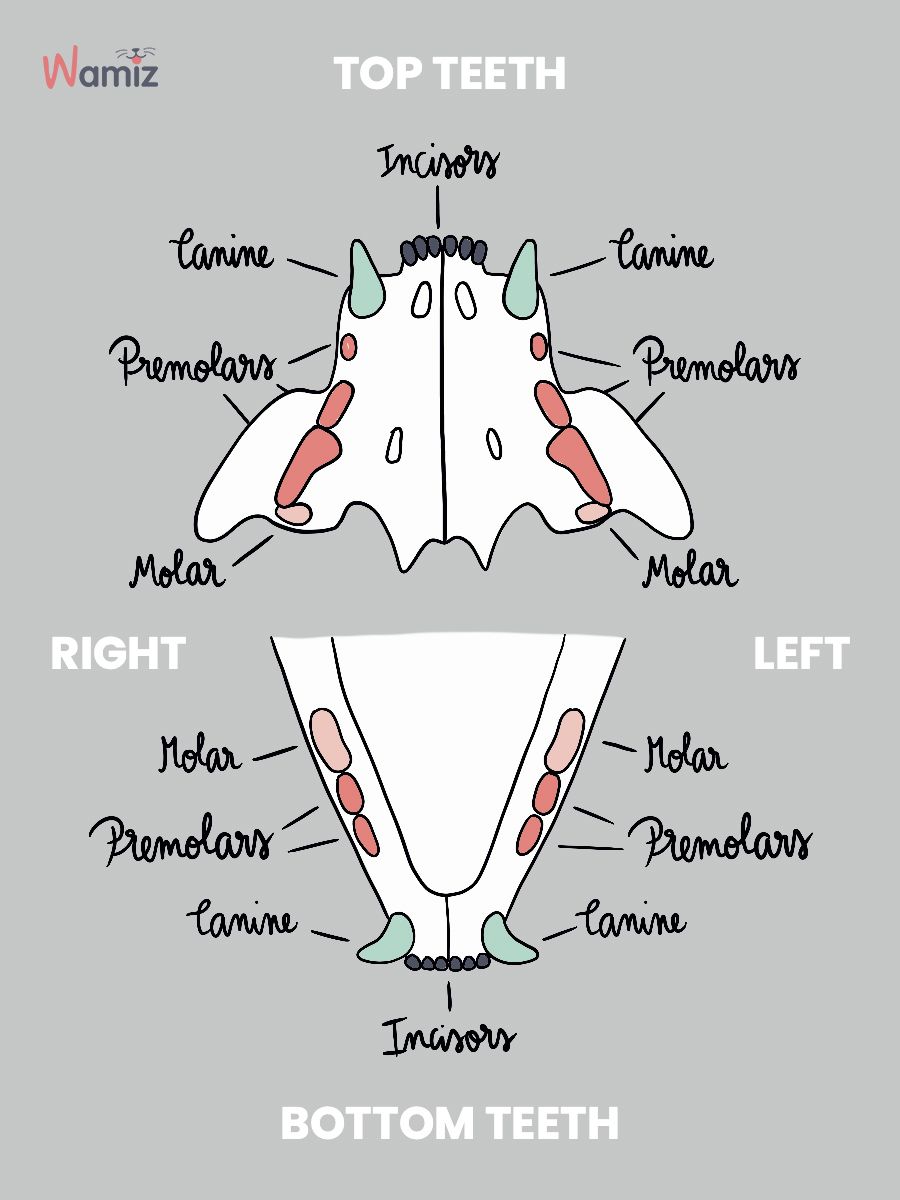Keeping your cat’s teeth as healthy as possible is not always the most straightforward job. Not many cats tolerate tooth brushing, and as owners, not many of us actually know what to expect in terms of feline oral health.
So, let’s look more closely at what to expect in terms of our cat’s teeth and how they change throughout their lives.
How many teeth does a cat need?
Understanding how many teeth cats have is one thing, but how many do they actually need? Just like humans, cats have two sets of teeth in their lifetime. As kittens, they grow 26 deciduous or primary teeth, and as adults, they have 30 permanent teeth.

Cats cannot regrow teeth once their permanent teeth are in, and with good dental health, they should remain in place their entire lives.
What happens during teething?
Kittens’ teeth develop just like human children’s. When born, kittens have no teeth, but their primary or “baby teeth” begin growing from around three weeks. As teeth breakthrough, it can be painful for kittens, and you may see a change in their behaviour. Some begin to chew things while others may shake their head from side to side as the teeth erupting is a new sensation. Both are completely normal and nothing to worry about.
Kittens have all their baby teeth from around six weeks, and by six months of age, those baby teeth are already being replaced by adult ones. Kitten teething can be even more painful at this point. You may find baby teeth on your floor, and your cat’s final set of 30 teeth will grow by seven to eight months.
What is a persistent tooth?
A persistent tooth is a type of tooth that survives the teething process. A persistent tooth is still present despite the eruption of a permanent tooth and can sit to the side or alongside the erupted adult tooth. These teeth often go undiagnosed until later in life and can cause dental problems, including difficulty eating and gum irritation. Your vet can easily remove any persistent teeth and improve your cat’s dental health.
Other common dental problems occur throughout a cat’s life, including feline odontoclastic resorption lesion (FORLS) and periodontal disease. If you find your cat struggling with its food, suffers from unusually bad breath, or seems in pain, always visit your vet for a check-up.
At what age do cats lose their teeth?
Cats should not typically lose any teeth in adulthood. However, adult cats are more prone to dental disease, and tooth loss can happen if your cat is suffering from dental issues. Dental disease is quite common in cats but not all dental disease results in tooth loss.
Senior cats may begin to lose their teeth in later life because their gums become weaker, but this is quite rare. The most common cause of tooth loss in cats is dental disease and decay. This makes it even more important to keep on top of your cat’s dental hygiene. It’s worth looking at how to clean your cat’s teeth, but if they don’t tolerate this, there are prescription dental diets, dental cat toys, and even tooth-cleaning treats on the market.
Can a cat with no teeth eat dry food?
If your cat has lost most or even all its teeth, it may have some impact on its diet. However, the foods cats with no teeth can eat are not always limited. Many cats do not chew their food, so they may still be able to enjoy dry food, but you can also opt for a mainly soft diet if your cat prefers this.
Getting used to eating with fewer teeth may take your cat some time, so let them have as long as they need to enjoy their food. Cats adapt well and won’t want to miss out on their meals, so they will quickly find a way to cope without their teeth.
Cat teeth seem very similar to humans in many ways. However, with two sets to get them through a lifetime, owners should do all they can to protect and preserve their feline friend’s oral health.



